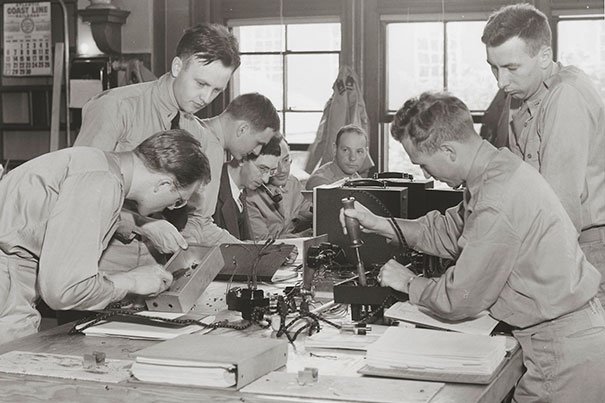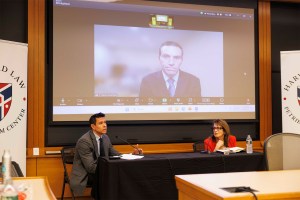Science & Tech
-

Harsh past might bare its teeth
Early adversity leads to higher aggression and fearfulness in adult canines, study says

-

What will AI mean for humanity?
Scholars from range of disciplines see red flags, possibilities ahead
-

‘Human exceptionalism is at the root of the ecological crisis’
Saving the planet requires getting over ourselves, argues author of ‘The Arrogant Ape’
-
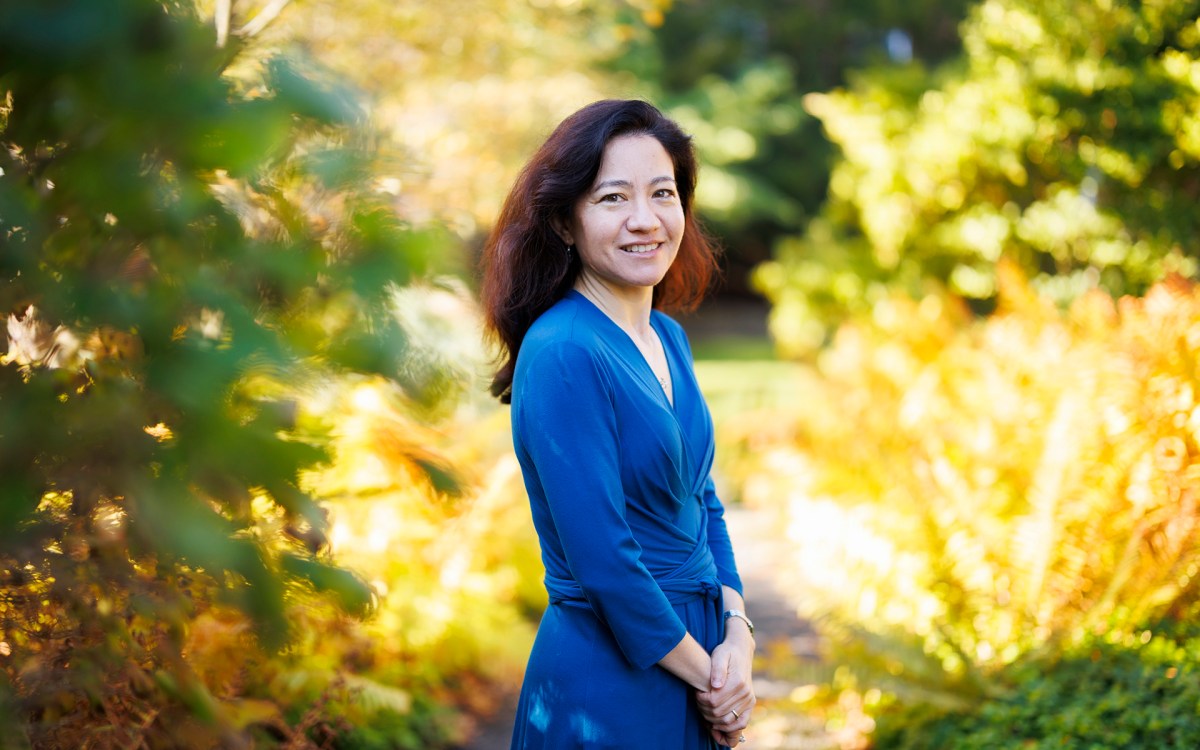
Lauren Williams awarded MacArthur ‘genius grant’
Math professor honored for theoretical breakthroughs with sometimes surprising applications across phenomena such as tsunamis, traffic
-
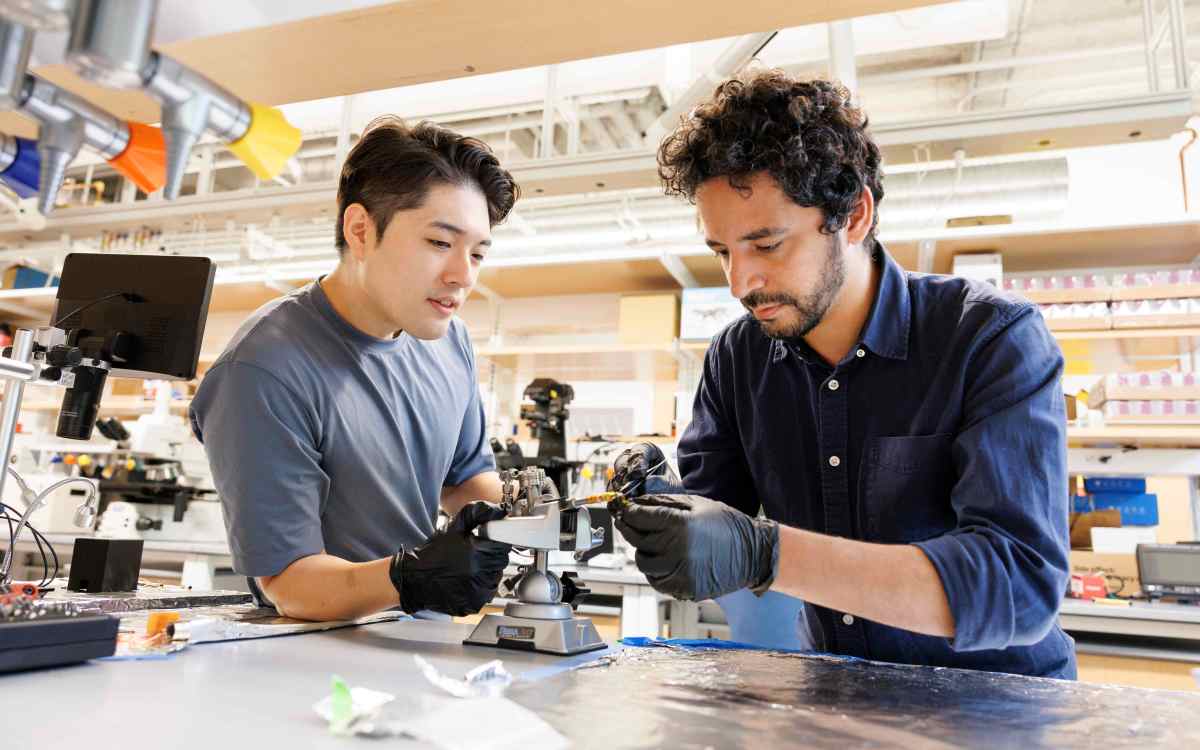
-
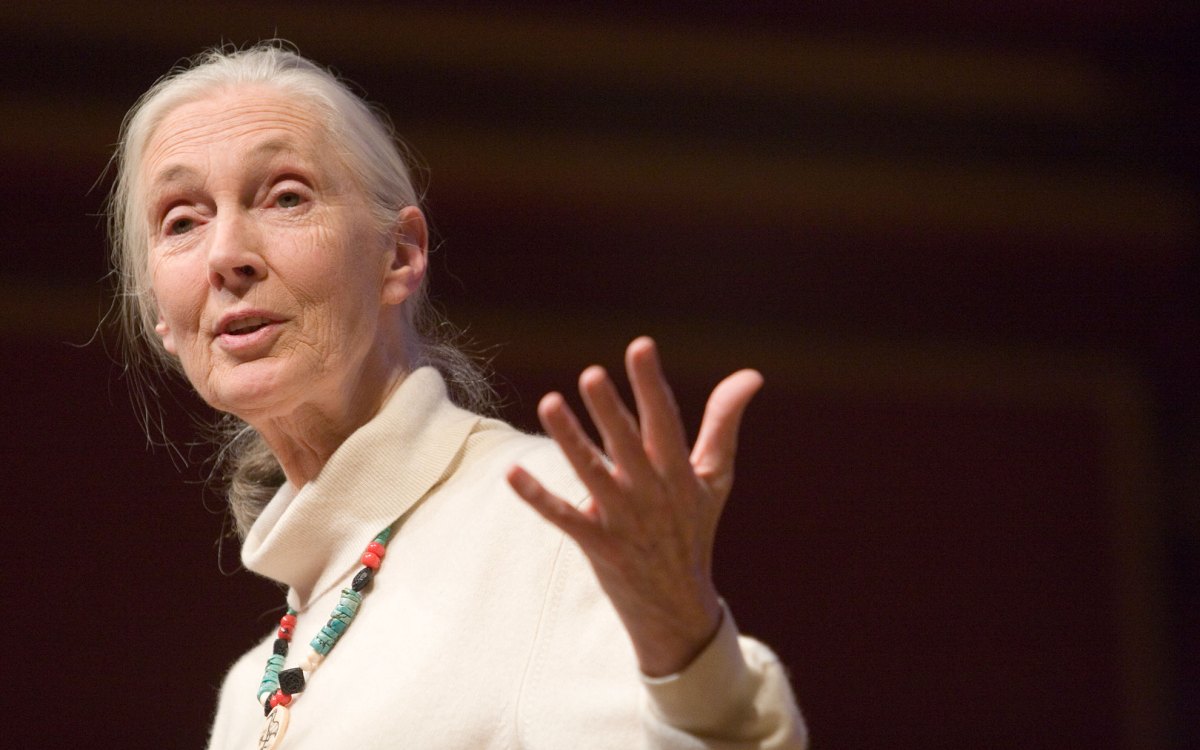
‘She had a sense of caring for everybody that she encountered.’
Richard Wrangham remembers his teacher and colleague Jane Goodall as a force of science, empathy, and hope
-
The shifts from climate change
Grasslands across North America will face higher summer temperatures and widespread drought by the end of the century, a study says, but those negative effects should be offset by an earlier start to the spring growing season and warmer winter.
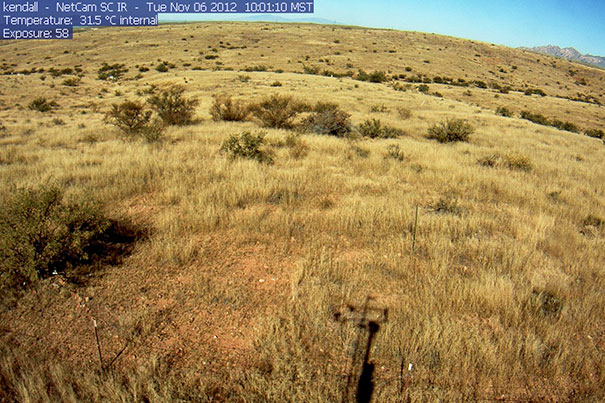
-
Veteran wants to improve the quality of life for amputees
Cameron Waites served in Iraq as an Army medic/health care specialist from 2004 to 2008. At 34, he is a student at Harvard Medical School where he hopes to discover solutions to problems that plague his fellow veterans.
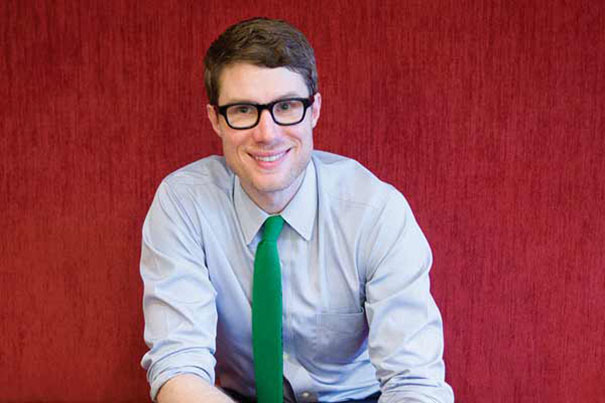
-
Long-ago freeze carries into the present
Harvard researchers contributed to a study identifying a 124-year freeze running from the sixth century into the seventh, with widely disruptive effects.
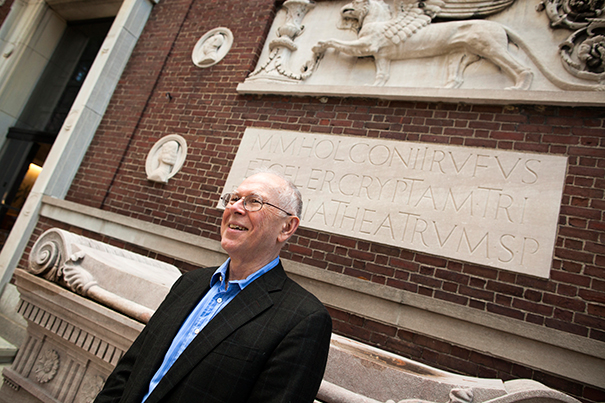
-
No rest for the graying
With the elderly beginning to outnumber the young around the world, workers, employers, and policymakers are rethinking retirement — what work we do, when to stop, and how to spend our later years.
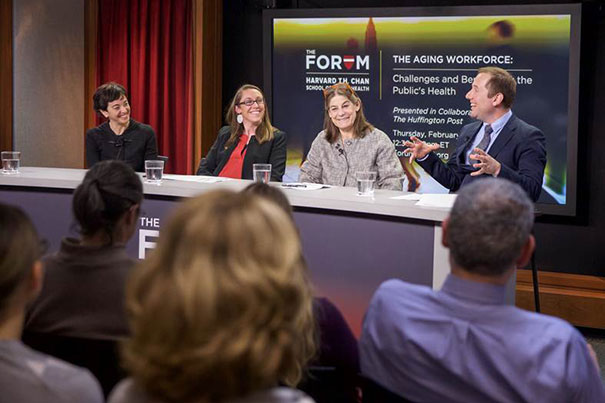
-
Love in the crosshairs
A panel of marriage counselors and negotiators tells an audience of Harvard Law students how to use negotiation skills in their romantic relationships.
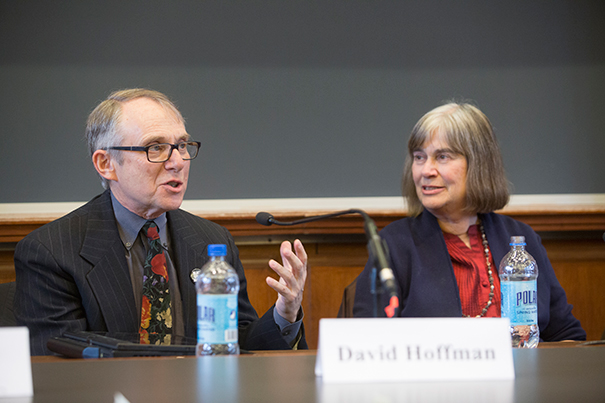
-
Today’s farming practices can cool temps
In a surprising finding that runs counter to most climate change research, Harvard scientists examining temperature records have shown that, in regions with the most intense farming, peak summer temperatures have declined over the decades.

-
Altered oceans
Proper management can bring species back from the brink and create healthier ocean ecosystems, experts said during a Center for the Environment panel.
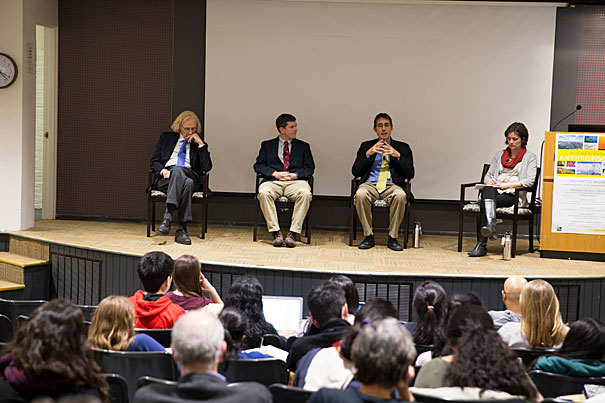
-
Making use of the head
Blue-banded bees bent on pollination bang their heads against tomato plants at a rate of 350 times per second, a Harvard researcher found.
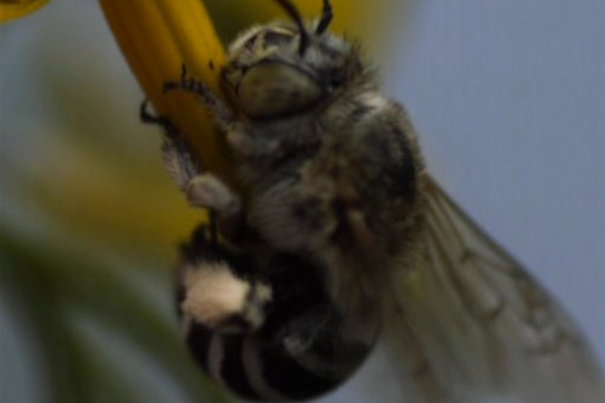
-
Plants with biosensors may light the way
A team of researchers from the Wyss Institute and Harvard Medical School has developed a new method for engineering a broad range of biosensors to detect and signal virtually any desired molecule using living eukaryotic cells. Its applications could range from detecting hormones to benefiting agriculture.
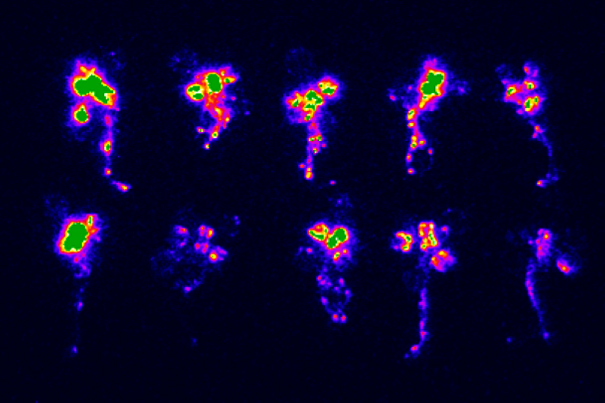
-
How, not why, the human brain folds
Researchers at the Harvard John A. Paulson School of Engineering and Applied Sciences, collaborating with scientists in Finland and France, have shown what ultimately causes the brain to fold — a simple mechanical instability associated with buckling.
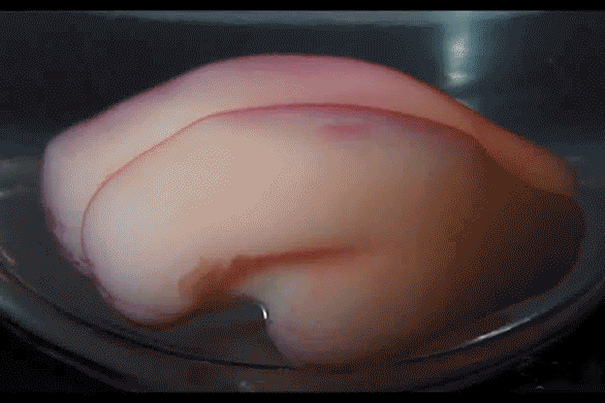
-
New World devastation
A new study led by Harvard’s Matthew Liebmann examines the health and ecological consequences of European colonists’ contact with Native Americans.
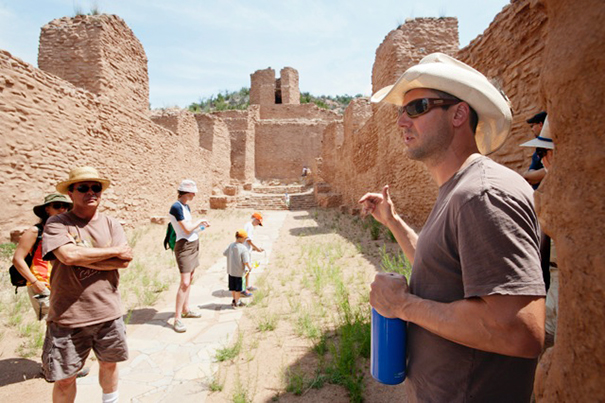
-
Mechanical stimulation shown to repair muscle
Harvard research teams find a promising new approach that uses direct mechanical stimulation to repair severely damaged skeletal muscles.
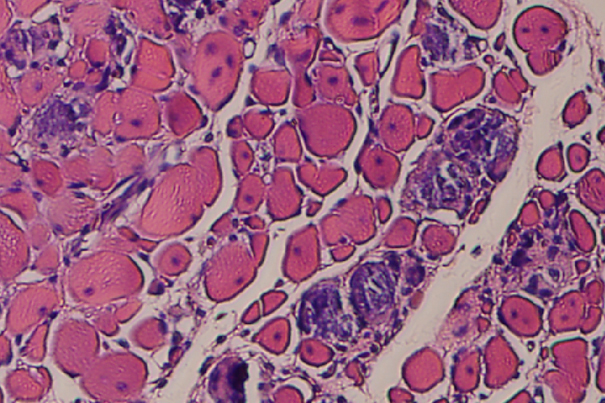
-
4D-printed structure changes shape when placed in water
A team of scientists at the Wyss Institute for Biologically Inspired Engineering at Harvard University and the Harvard John A. Paulson School of Engineering and Applied Sciences (SEAS) has evolved their microscale 3-D printing technology to the fourth dimension, time.
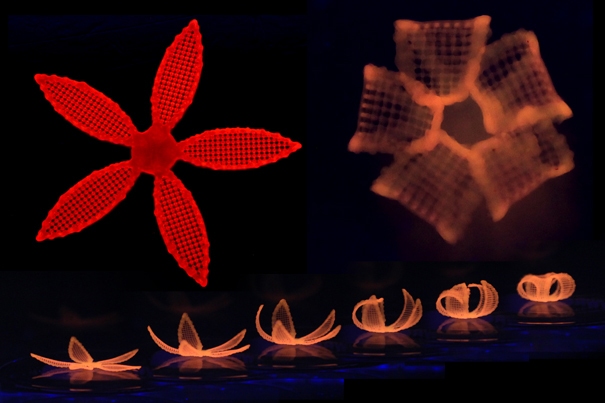
-
Leading through impact
For Harvard computer scientists, entrepreneurship is often a fulfilling extension of their cutting-edge research.
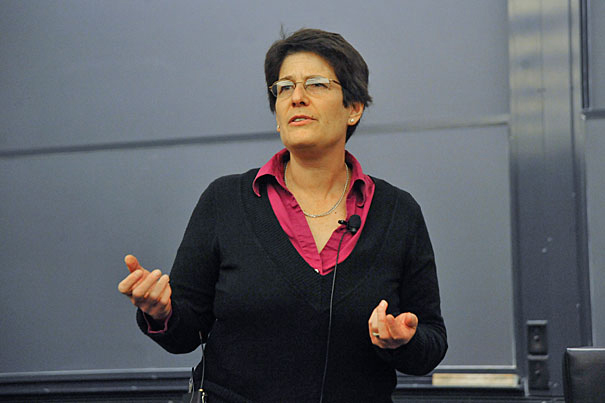
-
New destination for space-faring civilizations?
Globular star clusters date back almost to the birth of the Milky Way, and according to new research, they also could be extraordinarily good places to look for space-faring civilizations.
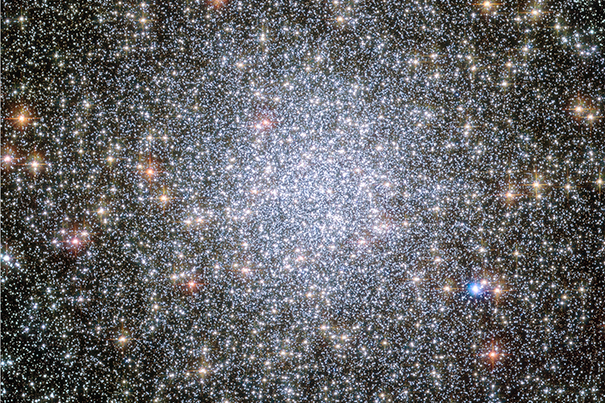
-
Did famine worsen the Black Death?
New European ice-core data provides a view of the difficult times that led up to and may have worsened the Black Death.
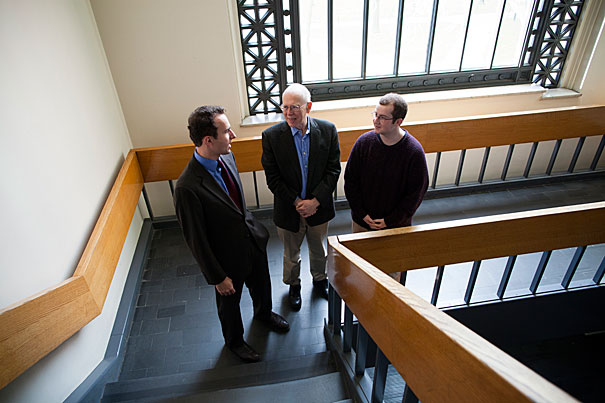
-
Artificial pancreas system aimed at type 1 diabetes mellitus
The University of Virginia School of Medicine and the Harvard John A. Paulson School of Engineering and Applied Sciences have developed an artificial pancreas system designed to help regulate blood sugar levels of individuals with type 1 diabetes mellitus.

-
Study of African trees goes public
A postdoctoral fellow has launched a citizen-science project that aims to digitize thousands of pages of detailed observations on the life cycles of African trees.

-
When the ‘sharing economy’ doesn’t
Some Airbnb hosts discriminate on the basis of race, suggests a study by researchers at Harvard Business School.
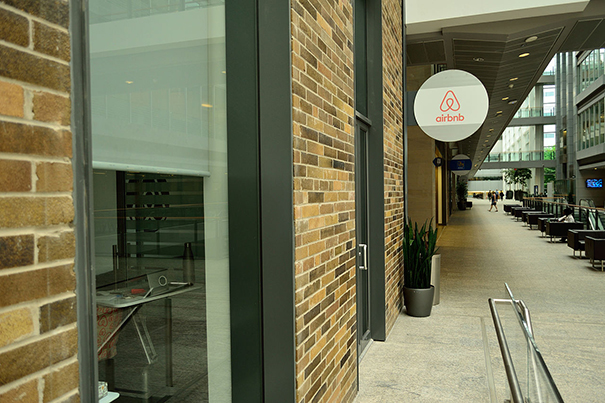
-
Paris deal a step toward better health, experts say
Panelists in a Harvard Chan School forum examined how the Paris climate agreement might affect human health.
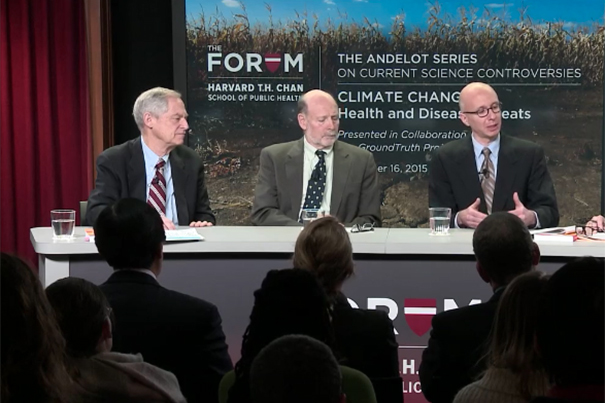
-
Disclosures on fracking lacking, study finds
Harvard researchers examined the nation’s registry, where oil and gas production companies disclose the chemicals they use in hydraulic fracturing, and found that they do it less than in the past.
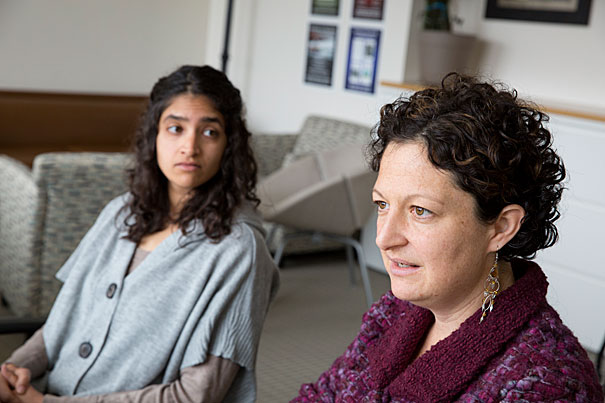
-
At last, global fretting on climate change
The Paris agreement to fight climate change greatly expands the international commitment to the cause, Harvard Professor Stavins says.
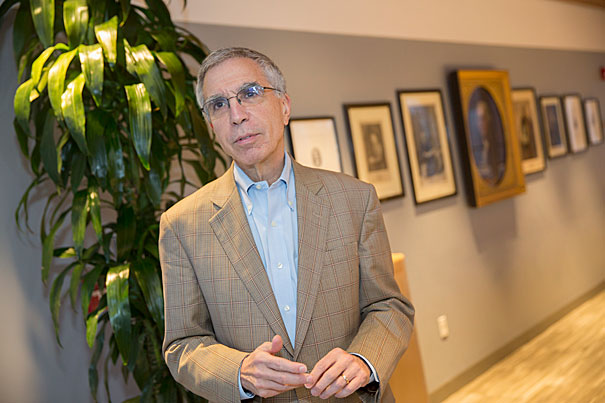
-
Mapping the road ahead for climate research
The need for continuous rigorous and relevant climate science will be more important than ever. With that framing, a group of scholars on Wednesday shared their ideas for improving the process by which the Intergovernmental Panel on Climate Change (IPCC) carries out its research agenda, at a side panel at the U.N. Climate Change Conference in Paris.
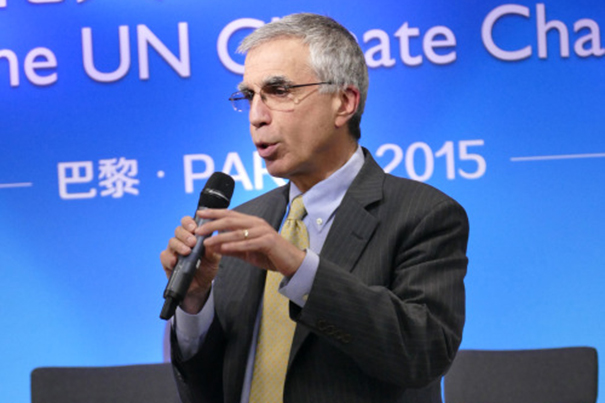
-
How climate agreement impacts business
The private sector — from large corporations to small businesses — will undoubtedly be impacted by whatever international agreement emerges from the U.N. Climate Change Conference taking place in Paris, but opinions vary as to how burdensome and costly those impacts will be.
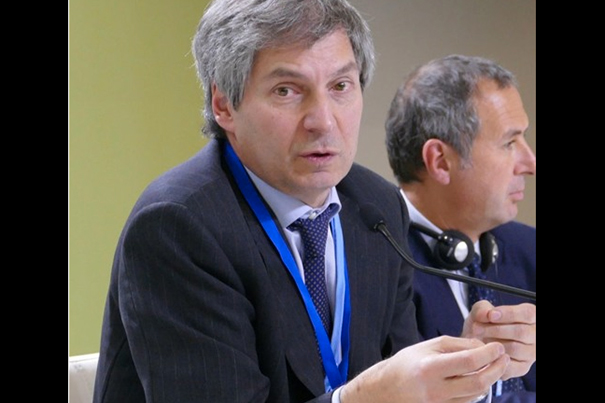
-
Sick planet, sick people
Harvard scientists are helping launch a new initiative to foster collaboration among scientists working at the intersection of the environment and health.
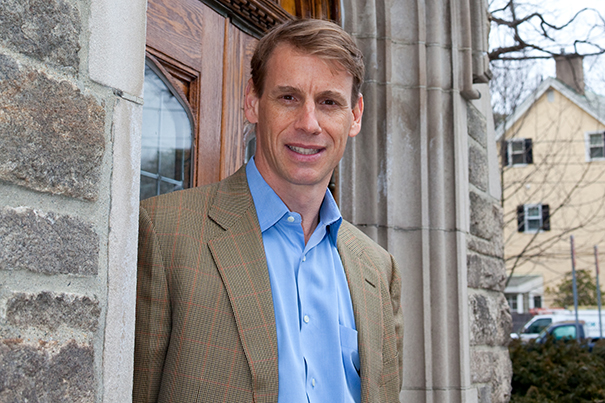
-
Harvard’s Stavins, Stowe compare climate change policies in Paris
A side-event panel titled “Dialogue on the Comparison of Climate Change Policies” on Friday at the Conference of the Parties (COP21) featured Robert Stavins, faculty director of the Harvard Project and Harvard Project Manager Robert Stowe.
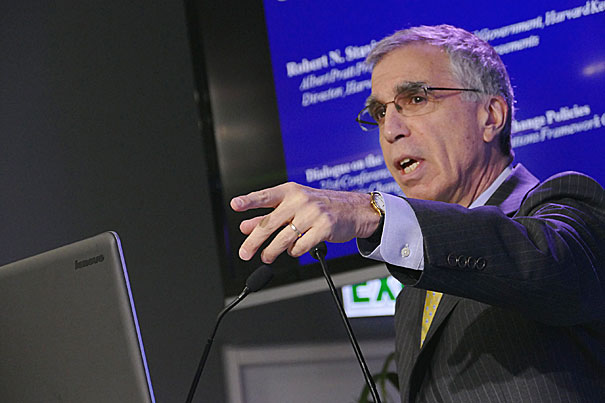
-
A focus on fairness
Using a simple game in which candy is distributed between two players, researchers found that children in various countries were quick to reject unfair deals, but in three countries they were also willing to reject deals unfair to others.
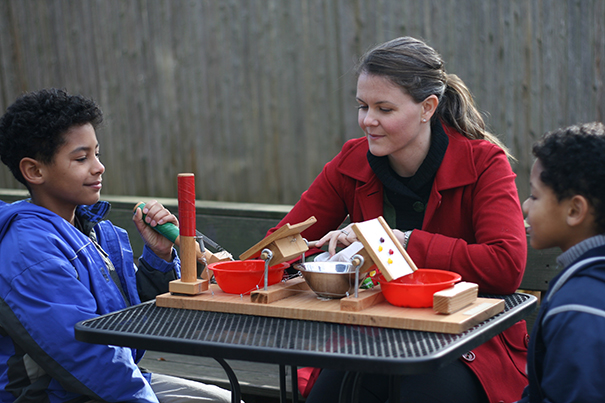
-
Optimism on U.N. climate talks
Panelists at the Kennedy School on Monday expressed optimism about the U.N. climate conference set to begin in Paris on Nov. 30, calling U.S. participation on the heels of domestic climate-related moves a “game-changer.”

-
The rule-breaker
Speaking at the JFK Jr. Forum, architect Frank Gehry reflected on half a century of creating surprises.
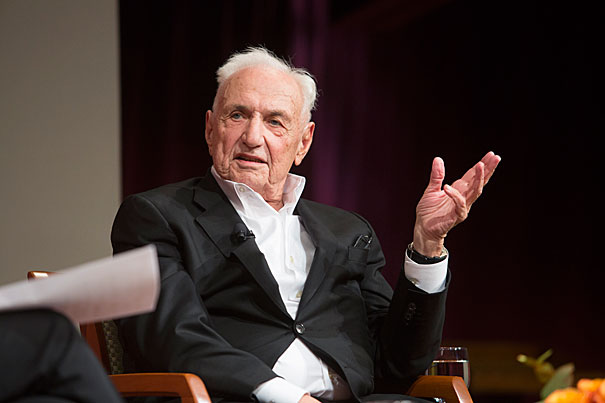
-
Cruft Laboratory goes to war
Harvard’s Cruft High Tension Laboratory was used in World War I as the Navy School for Radio Electricians. By World War II it was again called into service, this time assisting in the development of a torpedo that used acoustic technology to navigate toward an underwater submarine.
